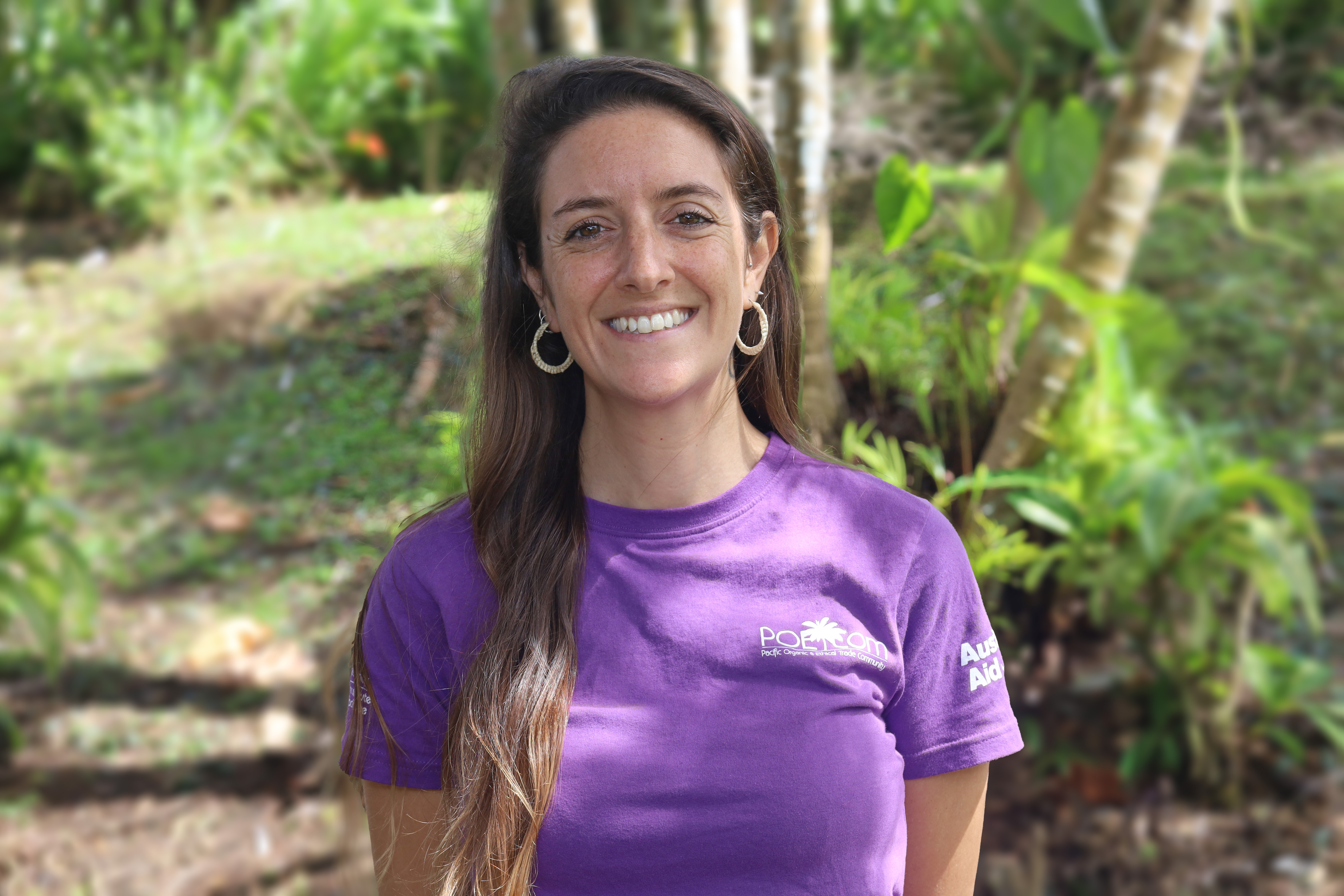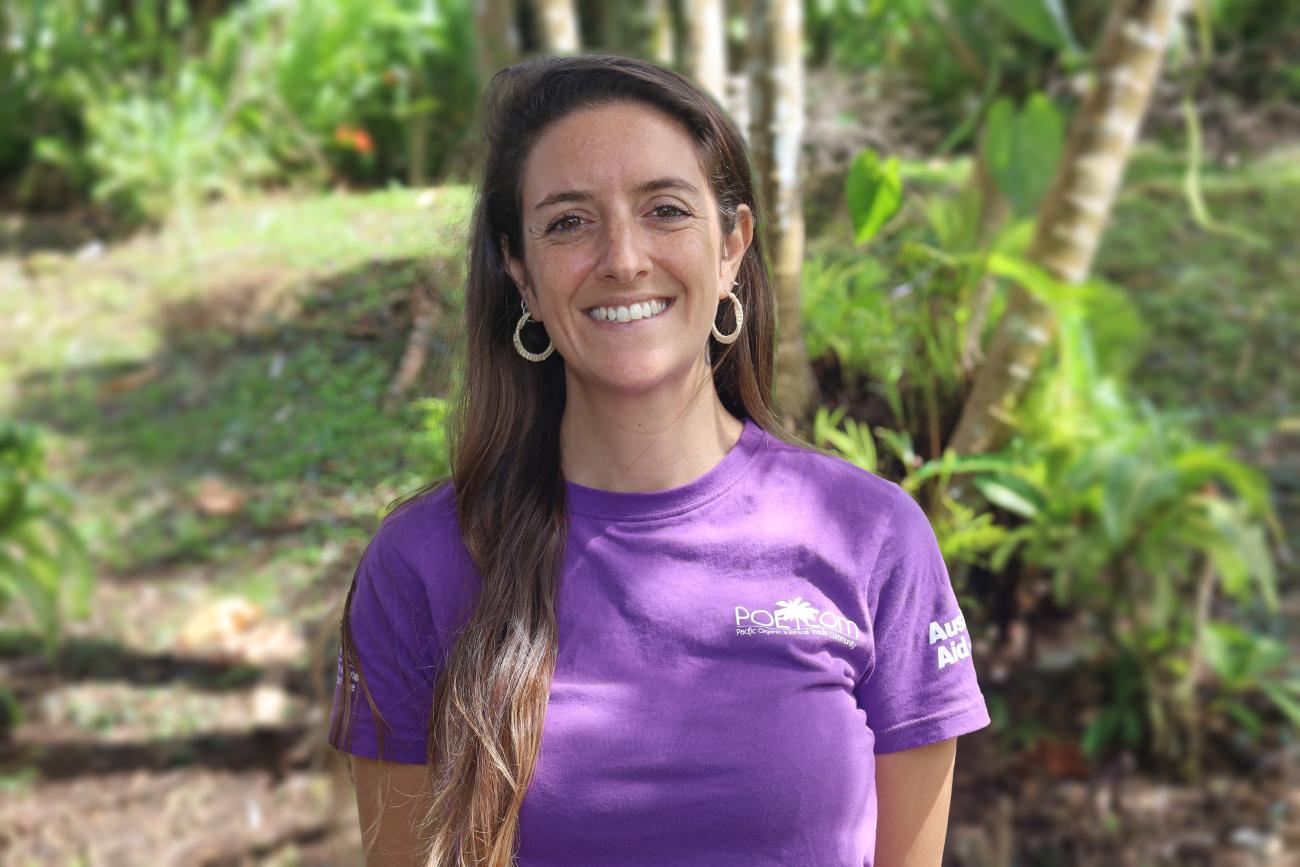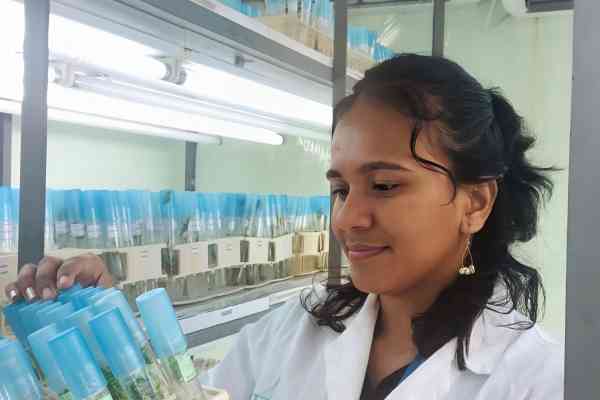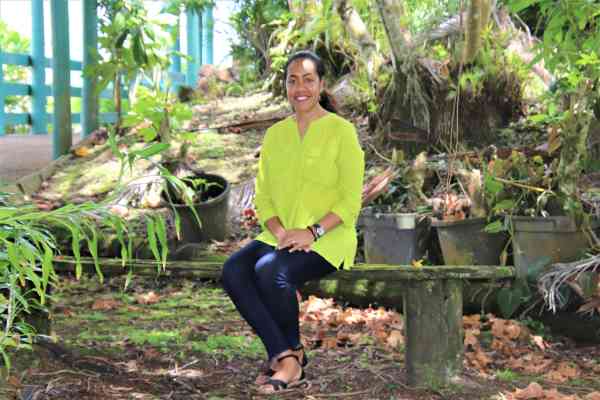
1- Could you briefly describe your academic or professional background and how it has led you to pursue research within the Pacific Community (SPC)?
I have 10 years of experience in gender mainstreaming into the agricultural and environmental sectors – sectors that are closely connected. In my role, I promote practices and policies encouraging fair and inclusive representation and participation of everyone involved in agriculture.
I have professional experience on three continents, and the trends are always the same. Due to deep-rooted stereotypes and perceptions about women's involvement in agriculture, their role is often under-recognised and not adequately supported. This lack of recognition is reinforced by traditional economic principles, indicators or measures that don’t correctly capture women’s contributions to agriculture strictly linked to care, well-being, and sustainability principles. Conducting research with an emphasis on qualitative data is an important way to generate evidence and knowledge about women’s roles in and contributions to agriculture. However, creating knowledge through research is only one component of my work. There is also the need to translate that knowledge into informed actions through project recommendations and policy advocacy.
2- Can you tell me about your research project? What inspired you to pursue it, and what are your main objectives or goals?
My research project is part of a broader collaboration between the SPC Pacific Organic and Ethical Trade Community (POETCom) initiative and the University of New England. We are collaborating to deliver the Gender Equity and Social Inclusion (GESI) Strategy of the Pasifika Sheep and Goat Improvement Project, which is a goal to improve small ruminants’ productivity both in Fiji and Samoa.
The project has highlighted the need for a Gender Equity and Social Inclusion (GESI) strategy since its design phase, with specific attention to the participation of, and flow of benefits to, women as they experience a greater degree of marginalisation in the livestock sector. Through the development and implementation of the strategy, our aim is to ensure that the project interventions are relevant to everyone in the household and farm and that women and men farmers can best support each other and equitably share the benefits from their participation in the project and broader sector.
3- What specific challenges or obstacles have you faced during your research, and how have you overcome them?
The Focus Group Discussions (FGDs) were the preferred research tool to capture the collective experience of women farmers and gain an in-depth understanding of gender and social issues crosscutting the small ruminant sector. While planning the FGDs, our first challenge was selecting our targeted audience. In Fiji and Samoa, most MAF (Ministry of Agriculture and Forestry) registered farmers are men. Hence, the Pasifika Sheep and Goat Improvement Project and MAF databases mainly include information and contact details of male farmers. Therefore, the outreach and women participant selection happened through the male head of the household – often their husband – whose information and contact details were the only listing available in the database. Similarly, to ensure a diverse representation of the targeted primary actors by age, socio-economic status, ethnicity, and religious background, an assumption was based on only registered farmers’ profiles.
This was a good lesson learnt for the project. We soon realised how women’s contributions were not adequately captured by the data available – reinforcing the narrative that the small ruminant sector is a men’s space, obscuring the significant contributions made by women. This became evident during the focus group discussions.
Despite this initial challenge, I am glad to say that thanks to project efforts, we have reached out to approximately 100 women farmers by using a culturally and gender-sensitive approach. This resulted in the creation of new databases in Fiji and Samoa that now contain information and contact details of women farmers, and these are used for upcoming capacity-building interventions.
4- In what ways has your research enhanced your personal and professional development?
Through this research, I had the privilege to meet many farmers, both women and men, engaged in the small ruminant sector. Meeting them was a unique experience, and I gained insight into their lives and sector experiences. I am grateful for the trust they placed in us and in the process. This enriched me both personally and professionally – now, our responsibility is to transform the insights into tangible actions addressing their needs and aspirations.
5- Are there any specific skills or knowledge areas that you have gained or improved upon?
Conducting participatory research focusing on qualitative data can sometimes be scary as you don’t have a rigid or strict approach. Also, participants might be reluctant to share their experience or simply be shy, making your work a bit more challenging. However, with practice, you learn how to best create a safe and interactive environment that encourages everyone’s participation, as well as formulate probing questions to gain a deeper insight into the topic. For the design and implementation of the FGDs, I worked closely with project staff and a local gender specialist. This teamwork allowed us to bring together our expertise and experience. As a result, we have been able to design culturally appropriate and innovative ways to get information while creating an environment that everyone can enjoy. For instance, one of the tools we used with the farmers was acting! We have been amazed by the acting skills of our farmers and the insight we could get from these exercises – on top of that, everyone could have a good laugh.
6- Could you shed some light on the organisations or institutions that have played a part in supporting your journey?
The support, expertise, network and dedication from the University of New England and the Ministries of Agriculture in Fiji and Samoa have been vital in making this research component successful. During the FGDs, we managed to interview 169 sheep and goat farmers, of which the majority were women. This high number makes us confident in the data we collect. We also conducted a validation of the findings with the same farmers – and on that occasion, we collaboratively decided, together with the project staff, to make the best use of the farmers’ time by organising technical training relevant to their needs. For most of them, this was the first training they had ever attended.
7- Lastly, would you give any advice to young aspiring researchers in your area?
Gender is an endless topic, constantly changing over time and across countries and cultures… There is a constant need to embrace new ideas, approaches, and expertise. So be curious and innovative! Gender research helps your critical thinking – to question the reality around you in support of higher principles and values. But don’t stop there! Action is needed to add value to the knowledge you have created through your research. Be proactive in looking for opportunities and partnerships that can meaningfully follow up on your research recommendations and bring a concrete change to the lives of people and communities.


